Feline Idiopathic Cystitis (FIC) is a mysterious and often misunderstood condition that can significantly impact the quality of life of our feline companions.
Imagine your cat experiencing an invisible enemy within, causing distress with no known cause.
This article dives deep into the world of FIC, shedding light on its causes, symptoms, and, most importantly, strategies to alleviate its effects and improve your cat's overall well-being.
Join us as we unravel the intricacies of this condition and arm you with the knowledge to make informed decisions for your beloved pet.
What Is Feline Idiopathic Cystitis?
Idiopathic Cystitis literally means bladder inflammation without a known cause. It is a common affliction in cats; some experts estimate it can affect up to 10 percent of cats.
Young to middle-aged cats - both males and females - are usually the ones getting the dreaded FIC diagnosis.
With older cats, cystitis often has a known cause, such as a bacterial infection (often due to underlying disease), bladder stones, and tumors.
What’s The Difference Between FIC And FLUTD?
FLUTD stands for Feline Lower Urinary Tract Disease. Blood in urine and pain during urination indicates an inflammation of the bladder and/or urethra.
This means we have a case of FLUTD on our hands. However, FLUTD is not a specific diagnosis.
You need to narrow it down to the source of inflammation: a bacterial infection, bladder stones, or even tumors.
Your veterinarian has an array of diagnostic tools for that end. He or she may perform a urinalysis, a urine culture, blood tests, x-rays, and ultrasound tests to determine the cause of inflammation.
Sometimes there is no obvious cause for the inflammation. Urine samples do not show any indication of bacteria, and no stones or tumors come up in x-rays and ultrasounds.
Blood appears in the urine, and the cat clearly shows pain, indicating an inflamed bladder. However, we don't know the source of the inflammation.
That’s when the final diagnosis is Feline Idiopathic Cystitis.
What Causes FIC?
Cats with FIC show greater sensitivity to stress and anxiety and possess smaller adrenal glands.
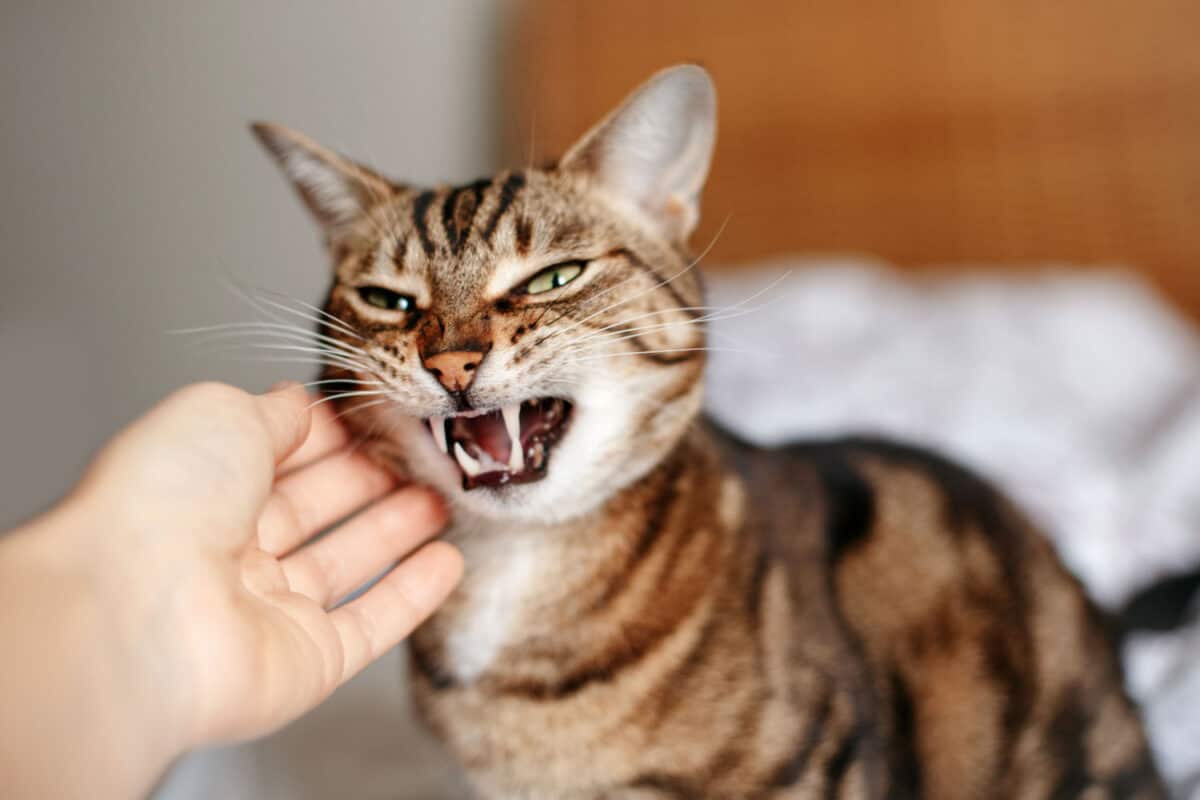
This observation led scientists to develop the current model, suggesting that stress causes FIC-related inflammations.
Specifically, when a cat feels stressed, its body releases fight-or-flight hormones. Normally, other hormones counter these stress hormones, signaling to the body that everything is okay.
However, in cats with FIC, the body doesn't efficiently "switch off" these stress hormones, allowing them to circulate longer.
The bloodstream carries these stress hormones to various parts of the body, including the cat’s bladder.
Inside the bladder, the elevated stress hormones activate sensory nerves, leading to inflammation and making the bladder wall vulnerable to minor cuts and bruises.
These microscopic injuries result in blood seeping into the urine, causing a painful burning sensation for the cat
How Bad Can Cystitis Get?
Genetic predisposition combined with environmental stress leads to inflammation and pain. Sometimes the pain itself causes enough stress to perpetuate the cycle.
Constant inflammation causes the body to generate more white blood cells, and the entire mix of red blood cells, white blood cells, and some crystals can sometimes create a mucus plug that can block the urethra.
Complete obstruction of the urethra is a life-threatening emergency. A blocked cat can die within 24-72 hours, and it’s a slow and painful death.
If you see your cat straining to urinate with no urine coming out, you should get it to a vet ASAP. Go to an emergency clinic if it’s the weekend or the middle of the night.
This is one of those situations where you simply cannot wait.
Even when not causing complete obstruction of the urethra, recurring flare-ups of Feline Idiopathic Cystitis put your cat’s life at risk.
Every time the bladder becomes inflamed, it thickens a little, with microscopic scar tissue forming. Eventually, this can lead to cancer of the bladder.
Symptoms Of FIC
Our cats cannot tell us when they experience the pain of cystitis, so we must look for other telltale signs of pain.
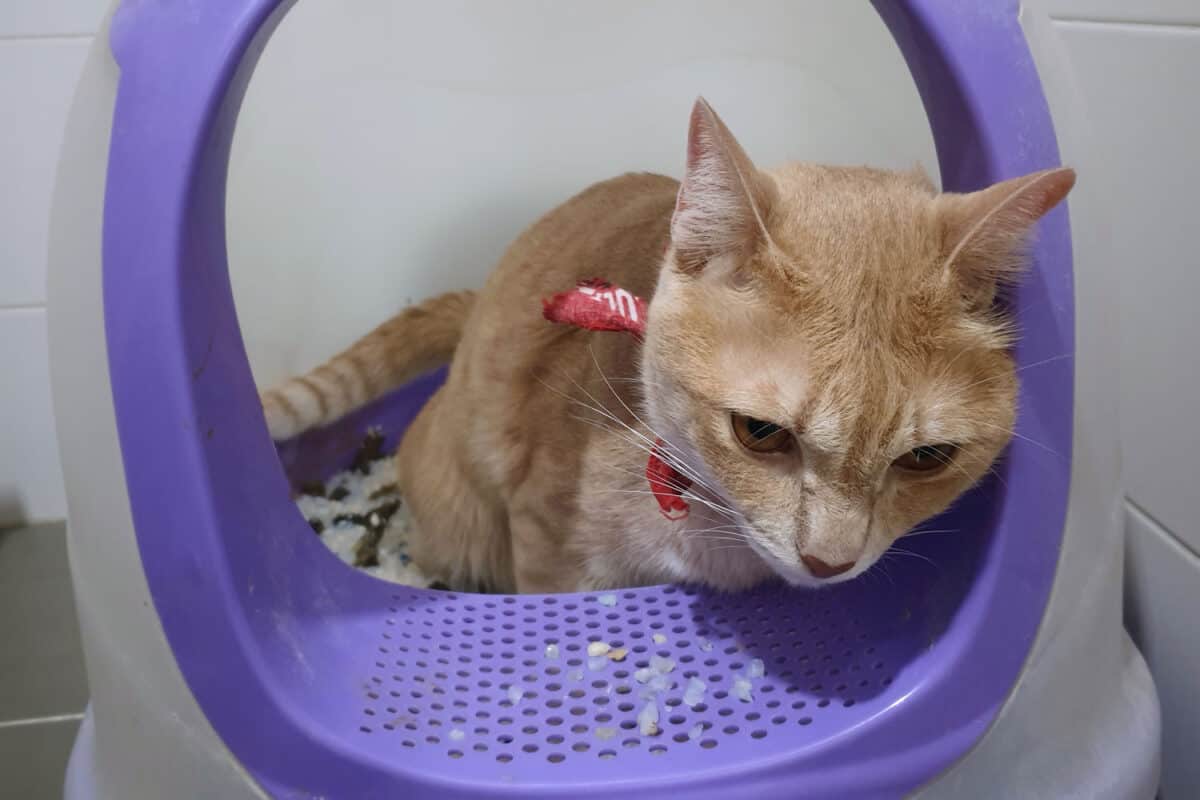
Often, the only sign of cystitis is litterbox avoidance. The cat associates the litterbox with pain and tries to get away from the painful location.
Small puddles of urine could mean the cat dribbles due to pain during urination.
Additional signs of pain while urinating can be vocalizing when in the litterbox or when attempting to pass urine.
Pain can also trigger excessive grooming of the lower abdomen and the genital area. It can often make Kitty grumpier than usual and sometimes even cause pain-induced aggression.
Bloody urine is another telltale sign of inflammation of the bladder. You might notice a change in the urine's color, but sometimes only lab tests can detect the presence of blood.
Keep in mind these are all symptoms of inflammation of the lower urinary tract. Only after ruling out potential known causes will your vet diagnose FIC.
How To Treat And Prevent FIC
Feline Idiopathic Cystitis means no bacteria, stones, or tumors have caused the inflammation. Stress, and more specifically, stress hormones, are the culprit.
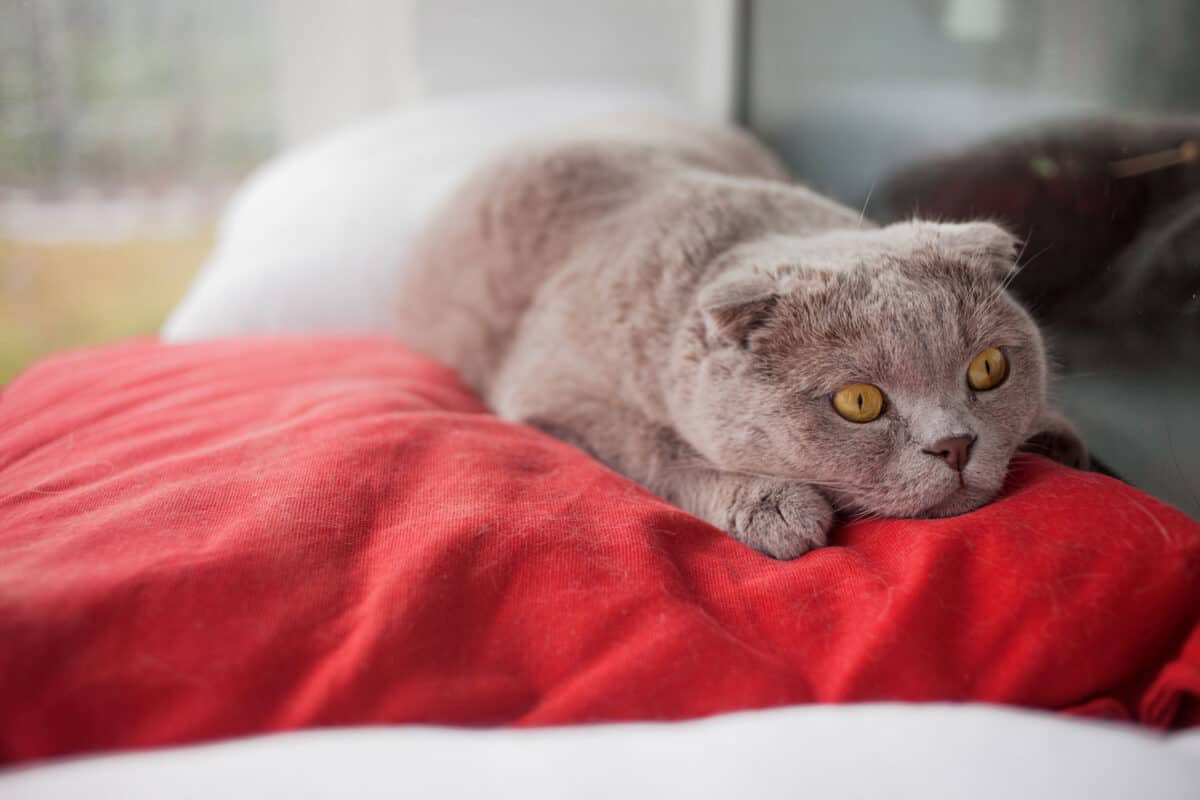
That's why stress levels often trigger FIC flare-ups, making it a chronic condition.
Most episodes of active symptomatic FIC clear up on their own, within 7-10 days, only to re-appear again at some point in the future.
Medicating Cats With FIC
You shouldn't give the cat antibiotics unless tests reveal bacteria in the urine. If bacteria are present, then it's no longer a case of FIC.
Pain medication can help with alleviating symptoms, as can antispasmodic drugs. These treatments can be crucial in cases where cats fall into a recurrent stress-inflammation-pain-stress cycle.
Some veterinarians suggest the use of anti-anxiety drugs or antidepressants. These drugs treat the root of the problem, yet have their own side effects and risks, especially with prolonged use.
Consider the pros and cons of long-term antidepressants with your veterinarian, considering the level of FIC and the frequency of recurring episodes.
Stress Management
If your cat has a predisposition to FIC, you must master managing stress in cats, more specifically, managing stress in your own cat.
This means identifying possible sources of stress in Kitty’s life and addressing them.
We got a guide that can help you find out the sources of stress and deal with them: Stress in Cats – The Ultimate Guide
Nutritional Aspects
Getting FIC kitties to increase their water intake can help dilute urine, thus reducing the concentration of stress hormones and the pain from bladder inflammation.
One way to do that is to switch from feeding dry cat food to wet food. Here are a few more ways to encourage your cat to increase its water intake: Tips To Increase Your Cat's Water Intake
Your vet may suggest switching to a different cat food formula, intended to change the balance of minerals in the urine. This approach might greatly benefit cats with crystals or stones.
However, it might not be suitable for cases of true idiopathic cystitis because, by definition, this condition doesn't arise from an imbalance of minerals or pH levels.
The Key To Living With FIC
Understanding that FIC is stress-related is essential to helping your cat.
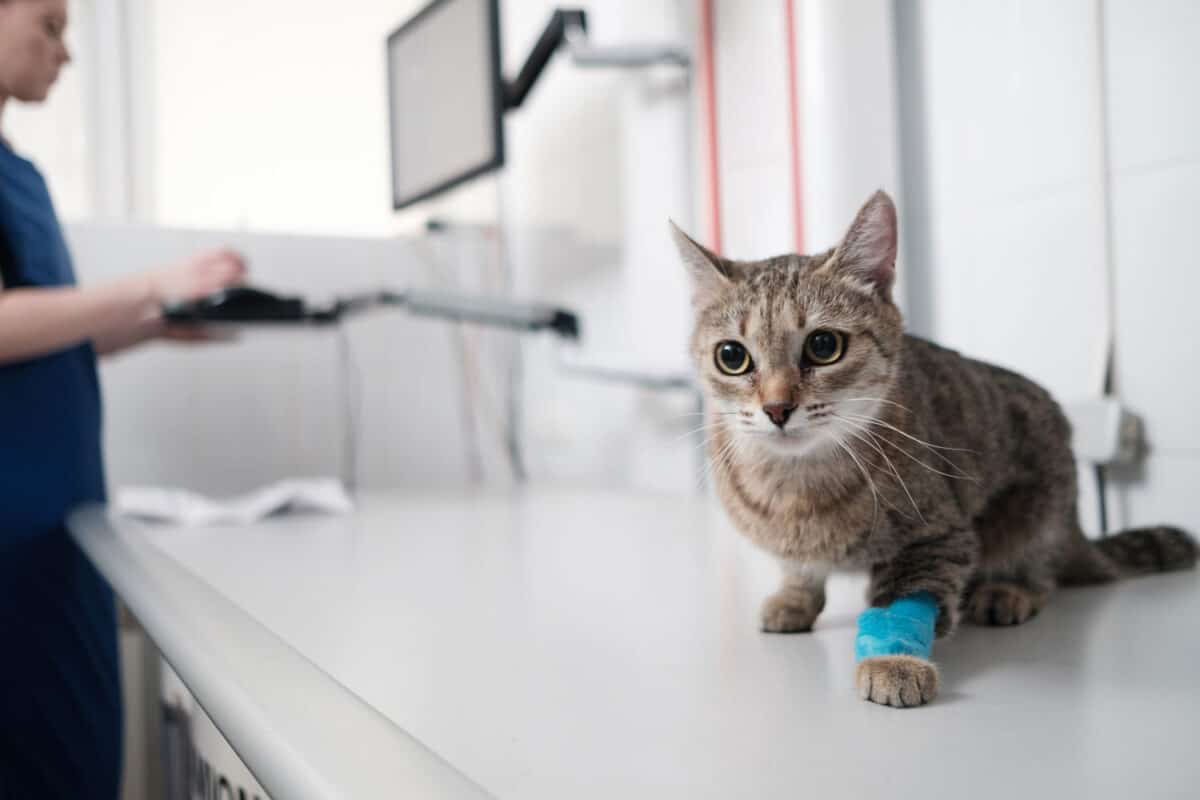
The only way to provide Kitty with long-term relief from this condition is by working on stress management. This isn’t easy.
It may require environmental changes, as well as changes to your cat’s —and your own—routine.
If you think your cat has an FIC episode, seek veterinary help.
Follow through with your vet in ascertaining the causes of bladder inflammation and work out a plan for providing immediate relief from pain and discomfort and long-term stress relief.
As always, please share your story with us in the cat health forums. We are there for you to help with questions and difficulties.
Share this image on your social media to spread awareness about this important issue.
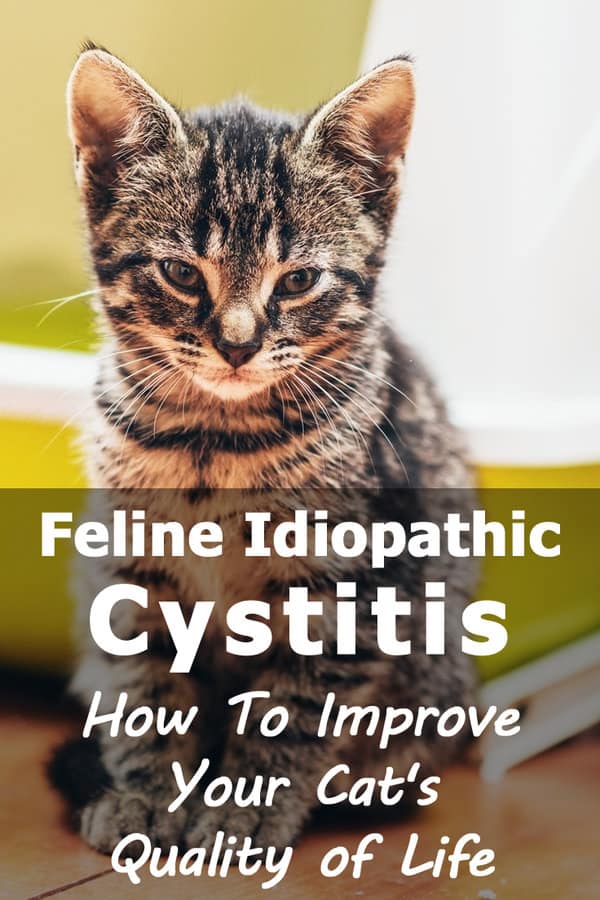
You may also be interested in reading the following:
- Feline Lower Urinary Tract Disease Flutd
- When Physical Problems Turn Into Behavior Problems
- How To Solve Litterbox Problems In Cats The Ultimate Guide
Note: We may get commissions for purchases made through links on this page.

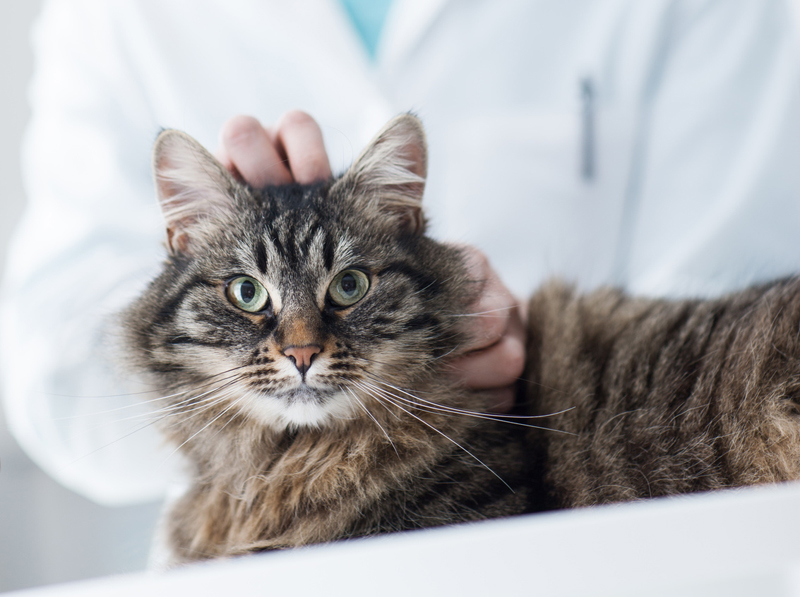
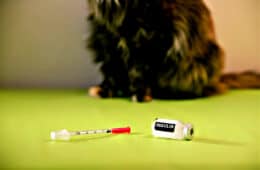
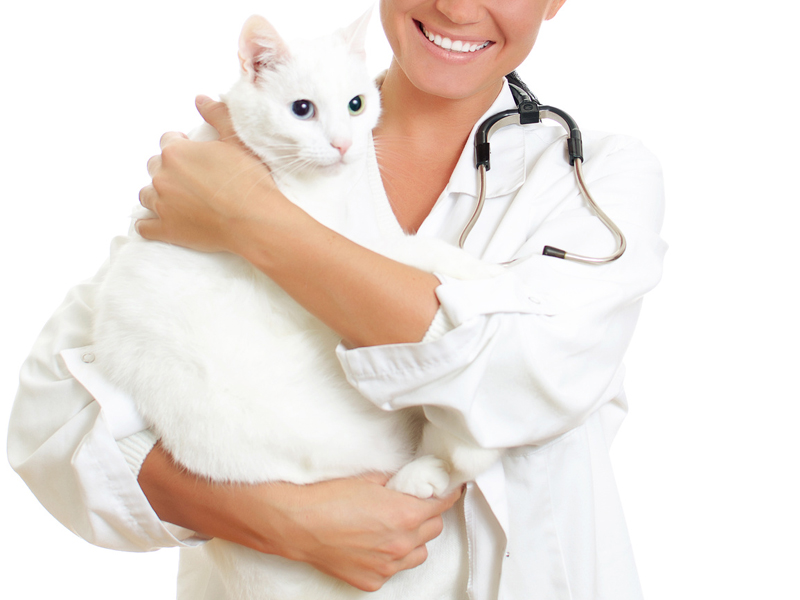
3 comments on “Feline Idiopathic Cystitis – How To Improve Your Cat’s Quality Of Life”